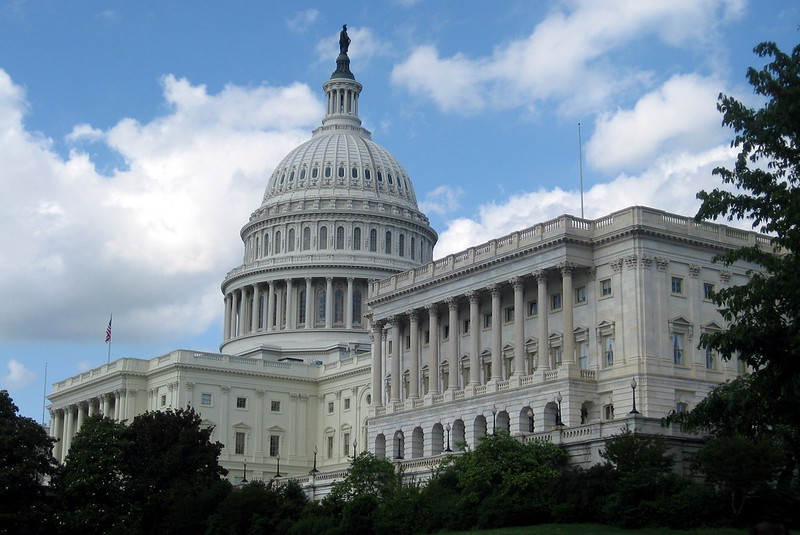Following the release of Transparency International’s (TI) latest Corruption Perceptions Index on Tuesday, Executive Director of TI US Gary Kalman offered on Thursday insight into the United States’ slightly improved—but still suboptimal—69 rating.
Despite a 76 out of 100 score in 2015, the U.S. has since slid into the 60s and achieved a record low 67 in 2020 and 2021.
“The increasing partisanship has fed a cynicism that then reinforces the belief that the ‘other side’ is cheating,” he told OCCRP. He also highlighted recent “changes to election laws that are either perceived to be or, in reality are, a partisan manipulation of our election laws,” which have undermined the public’s faith in the electoral process.
At the Supreme Court level, he noted how, in 2013, its judges overruled significant portions of the Voting Rights Act, allowing states to impose restrictive voter laws in the ruling party’s favor. He also brought up the 2010 Citizens United decision that has promoted runaway election financing from corporations and has since allowed select demographics to have a disproportionate effect on the electoral process.
More recent examples he drew on were the false allegations of voter fraud in the wake of former president Donald Trump’s 2020 defeat and the subsequent Jan. 6th attack on Congress. Divisions between the left and the right have since taken a more center stage position in the media’s coverage of Capitol Hill.
These ever growing ‘us vs. them’ and ‘with us or against us’ mentalities, that have come to dominate the U.S. political process, have inflamed perceptions of corruption from within the highest levels of the government, Kalman said.
Another significant concern he brought up was that of gerrymandering, which he said has “resulted in the least competitive congressional elections in over 50 years.”
In layman’s terms, gerrymandering is the process by which electoral district lines are redrawn to create an unfair advantage for a particular party. In most U.S. states, it is the state legislature that draws the new district lines every ten years, which paves the way for abuse depending on which party a particular legislative body represents.
This can be accomplished via multiple tactics; such as “cracking,” where one spreads the opposition’s voting body across so many districts that they do not possess enough votes to win any particular seat; or by “packing” the opposition’s supporters into as few districts as possible so as to ensure that they have no chance of winning a majority.
Subsequently, with victory all but assured, the ruling party’s willingness to compromise and govern with the opposition is diminished, and its members can instead promote the more extreme points on their ideological agenda.
Ultimately designed to protect the incumbent party or candidate in the face of a more popular opponent, gerrymandering is now widely recognized as a corruptive byproduct of the democratic process and an example of the ruling party modifying election laws for its own benefit, Kalman said.
One final point that Kalman and TI touched on was the recent setbacks that the ENABLERS Act, a proposed anti-money laundering bill, has faced in passing through the Senate.
Introduced in October 2020 as a bipartisan bill, the ENABLERS Act is intended to close existing loopholes used by criminals worldwide to launder their ill-gotten gains through the U.S..
For instance, if one were to wire a significant amount of money to the U.S. from the Cayman Islands, American banks will file a suspicious activity report. The transaction will subsequently be flagged to ensure that neither the originating nor the receiving accounts are linked to any criminal activity.
To get around this hurdle, money launderers resort to real estate transactions, private equity investments, art dealers, and other ‘enablers’ that do not receive the same degree of scrutiny from U.S. financial authorities.
Kalman highlighted that anonymous companies and gatekeepers such as lawyers, accountants, and investment professionals help “create the financial vehicles for corrupt and criminal actors to hide and launder money in the U.S.”
If signed into law, the ENABLERS Act would set the same standards for all industries that perform financial transactions for their clients, not just banks.
Although the House passed the bill in July 2022, it was blocked by the Senate in December, who ultimately voted not to include it in the 2023 defense budget. Despite this, TI noted that the bill can still be given another chance by the newly-formed 118th United States Congress.
Citing U.S. Treasury Secretary Janet Yellen, who remarked that the U.S. is the best country in the world to launder ill-gotten gains, Kalman told OCCRP that “we, in the U.S. and EU, shouldn’t be too quick to point fingers at others. Transnational corruption involves a global ecosystem and we need to acknowledge and address our role.”
Despite describing the U.S.’s two-point bump in the Corruption Perceptions Index as statistically insignificant, Kalman does see room for optimism going forward.
Specifically, he highlighted how Congress passed the Electoral Count Act to clarify the VP’s role in counting the states’ electors and how voting regulations have been streamlined in Connecticut to make the process as a whole easier.
He also referenced progressive voting reforms in Michigan, where the right to vote has been included in the state constitution; and also Nevada, whose voters approved an initiative to allow open primaries and ranked choice voting.
“Amidst all the bad news,” Kalman said, “there are signs of hope.”

